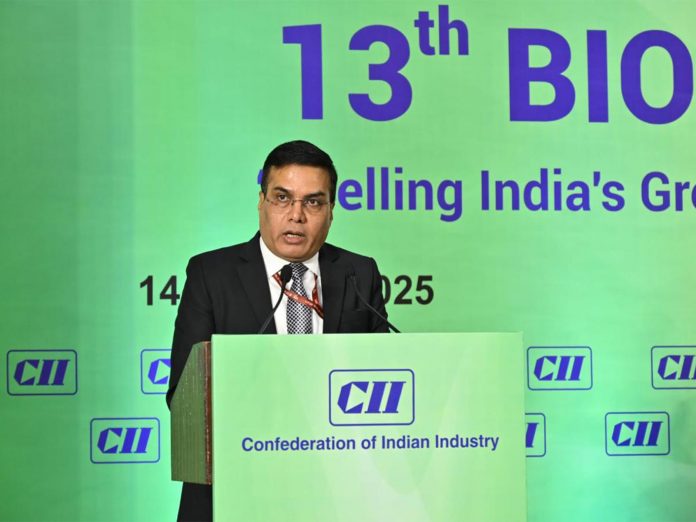Reaffirming India’s commitment to a cleaner energy future, Ashwini Srivastava, Joint Secretary, Department of Food & Public Distribution, underscored the government’s strategic focus on building a robust, year-round ethanol supply chain.
Speaking at a recent bioenergy event, Srivastava emphasised feedstock diversification as a central pillar of India’s biofuel roadmap.
“India now has the production capacity to exceed 20% ethanol blending,” Srivastava said. “Our focus is on building a robust, sustainable supply chain that supports both industry and farmers,” he added, ANI reported .
Srivastava outlined several initiatives currently underway to secure continuous ethanol production, including the rapid expansion of grain-based ethanol capacity, procurement of broken rice from five states, and the introduction of sweet sorghum as a promising next-generation biofuel crop. He also highlighted the role of cooperative bodies like NAFED and NCCF in aggregating feedstock across the country, enabling a decentralised and farmer-centric model.
The government’s push aligns with India’s broader transition toward a low-carbon economy, and Srivastava’s remarks signal an evolving role for the state — from regulator to enabler.
Sumit Sarkar, CEO of the Chhattisgarh Biofuel Development Authority (CBDA), showcased how the state is turning agricultural residues and urban waste into clean energy. Chhattisgarh produces over 10.9 million tonnes of rice biomass and 0.6 million tonnes of maize biomass annually — a strong feedstock base for ethanol and compressed biogas (CBG) production.
Sarkar highlighted CBDA’s role in implementing national bioenergy goals on the ground. From Napier grass cultivation and sugar beet trials to the setup of municipal solid waste-to-CBG plants, the state is building a climate-resilient and circular bioeconomy.
“Every district in Chhattisgarh is being declared a catchment area for biomass-based plants,” Sarkar said. “This is not just policy — it’s grassroots implementation. We see every ton of agri-residue as an opportunity for clean energy, better incomes, and a circular economy.”
As India pushes toward a biofuel-powered future, the convergence of central policy, industrial action, and state-led innovation — as articulated by Srivastava and other key voices — will be critical in achieving ambitious ethanol blending and decarbonization targets.
During the speech at the event, the Ambassador invited Indian stakeholders to explore investment opportunities and joint ventures.
(With inputs from ANI)












